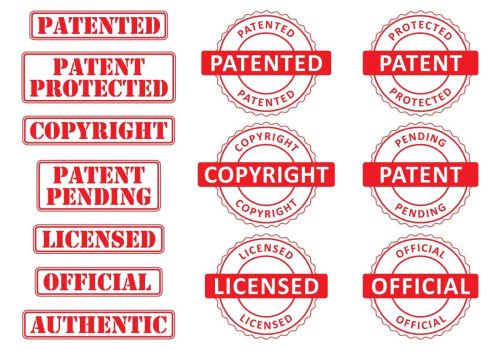Menu
June 19th, 2025

What Is the Difference Between Trademark, Copyright, and Patent?
You’ve created something. Maybe it’s your brand name, maybe a product, maybe your website content or a bit of software you wrote late one night when the business needed it. Now you’re asking the right question: how do I protect this? And more specifically, what is the difference between trademark, copyright, and patent?
For business owners who build, make, write, or design, figuring out how to protect what you’ve built starts with understanding what kind of intellectual property it is and which legal protections apply. That’s what this article will help you with.
Trademarks and Service Marks – Protecting Your Brand Identity
Let’s start with trademarks. When you think about a trademark, think about the parts of your business that tell customers, “This comes from me.” That includes your business name, your logo, your slogan, and even the unique way you package your product or design your storefront. A trademark legally connects those identifying elements to your business, giving you the exclusive right to use them in connection with your goods or services.
When you register your trademark or service mark with the U.S. Patent and Trademark Office (USPTO), you strengthen those rights. It means no one else can legally use a similar mark that could confuse customers or damage your brand’s reputation. And this protection is for any business that wants to own its identity. Whether you’re running a coffee shop, selling clothes online, or offering professional services, a trademark helps protect the face of your business. If you’re wondering how to register, check out this helpful article.
Copyright: Protecting Creative Works
You might not realize it, but as a business owner, you’re probably creating more intellectual property than you think. Your website content, custom software code, blog posts, marketing videos, and even sound recordings qualify for copyright protection. Copyright covers original works that are fixed in a tangible medium. In other words, something you can read, see, hear, or store.
And here’s the good news: as the copyright owner, you automatically have the legal rights to reproduce your work, distribute copies, display it publicly, and even prepare derivative works like edits or updates. But you must register a copyright on your work at the federal level in order to have the strongest rights for protecting your work.
Patents: Protecting Inventions and Innovations
A patent is how you lock down your invention. If you’ve developed a product, a process, or any technical solution that’s new and useful, you might qualify for a patent, giving you exclusive rights for up to 20 years (utility patents). This protection stops others from making, marketing, selling, or importing your invention.
You’ve got three types of patents to consider:
- Utility patents: Protect how your invention works (great for pharmaceutical drugs, computer programs, or mechanical tools).
- Design patents: Protect the visual design or appearance of your invention.
- Plant patents: Protect newly developed or discovered plant varieties.
You’ll need to go through the patent application process with the USPTO. Once filed, your invention gets examined to see if it qualifies for patent protection.
When to Use Each Type of Protection
Now that we’ve covered what these protections mean, the next logical step is figuring out when to choose one over the others. This decision matters — it’s how you make sure your intellectual property is backed by the right legal protections from the start. Here’s a simple breakdown to guide you:
- Trademark: Use when protecting your brand’s reputation with a logo, slogan, or business name.
- Copyright: Use when safeguarding creative work like website content, sound recordings, or custom designs.
- Patent: Use when you’ve created a new invention, such as a medical device, a quieter blender, or a new kind of bicycle gear.
Conclusion
We hope this gave you clarity on the difference between trademark, copyright, and patent, and now you’ve got a better sense of which type of intellectual property protection fits what you’ve created.
Are you wondering about any of the issues mentioned above? Please email us at info@wilkinsonlawllc.com or call (732) 410-7595 for assistance.
At Wilkinson Law, we give business owners the clarity they need to fund, grow, protect, and sell their businesses. We are trustworthy business advisors keeping your business on TRACK: Trustworthy. Reliable. Available. Caring. Knowledgeable.®


